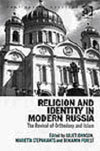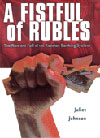Canadian Politics
In the Canadian Field, McGill provides an unparalleled location and unique resources for the study of Canadian and Quebec politics. Current areas of concentration include the institutions of Canadian government and federalism, political behaviours, and public policy, as well as the politics of gender, environmental policy, public health, Quebec politics, Indigenous politics, colonialism, and the study of race. The following faculty members conduct research and offer courses in the field of Canadian politics:
·Tari Ajadi
·Daniel Béland
·Éric Bélanger
·Kelly Gordon
·Amy Janzwood
·Antonia Maioni (Associate Member)
·Christopher Manfredi
·Filippo Sabetti
·Christa Scholtz
·Debra Thompson
Comparative Government and Politics
Scholars of Comparative Politics systematically explore and compare the variety of ways that peoples around the world are governed. It is the most diverse field in political science, embracing
themes such as democracy and authoritarianism, political contention and institutional change, the politics of identity, and political behaviour and public opinion, among many others. Comparative
Politics is the largest field in political science at McGill, with a wide range of expert faculty members conducting research on key themes and regions of the world. The following faculty members conduct research and offer courses in this field:
Manuel Balan (Latin American Politics, Corruption and Development. Political Competition)
Elissa Berwick (Political Behaviour, Nationalism, Quantitative Methods)
Rex Brynen (Middle East Politics, Conflict Simulation, Peacebuilding)
Daniel Douek (African Politics, Political Violence, Middle East Politics)
Aaron Erlich (Democratic Development, Public Opinion and Media, Quantitative Methods)
Terri Givens (Immigration Politics, Transnational Race Politics, European Politics)
Tania Islas Weinstein (Politics of Art, Latin American Politics, Qualitative & Interpretive Methods)
Amy Janzwood (Energy Politics, Environmental Politics, Contentious Politics)
Juliet Johnson (Political Economy of Finance, Memory Politics, Post-Communist Politics)
Erik Kuhonta (Development and Inequality, Political Institutions, Southeast Asian Politics)
Juan Pablo Luna (Latin American Politics, Party Politics, Political Violence, State Capacity, Democratic Politics)
Khalid Medani (African Politics, Islam and Politics, Informal Economies)
Maria Popova (Rule of Law, European Union Politics, Post-Communist Politics)
Filippo Sabetti (Public Governance, European Politics, Italian Politics)
Dietlind Stolle (Political Behaviour, Social Capital, Research Design)
Debra Thompson (US politics, Comparative Black Politics)
Narendra Subramanian (Identity Politics, State Formation, South Asian Politics)
Juan Wang (State Power, Contentious Politics, Chinese Politics)
International Relations
The International Relations (IR) group prides itself with its eclecticism – thematically, methodologically as well as theoretically. Our research spans several areas, including global governance, international political economy (IPE) and security studies. Members of our group use a variety of cutting-edge quantitative and qualitative methods, from computational text analysis to historical or interpretive approaches. Thanks to the many different theoretical sensitivities in our group, ranging from critical theory to rational choice institutionalism through realism or international political sociology, we are at the forefront of scholarly developments in the discipline.
Building on these synergies, composing a thesis committee should be quite straightforward for incoming graduate students. Whether you want to study international trade and finance, international organizations, great power rivalries, refugees, the politics of international law, global history, transnational relations, peacebuilding, international ethics, humanitarian intervention, multilateral diplomacy, major wars or nuclear proliferation, we have many possible duos and trios of Faculty to accompany you during your studies at McGill. Our course offerings at both the undergraduate and graduate levels cover a similarly broad range of topics.
The Centre for International Peace and Security Studies (CIPSS), a joint endeavor with Université de Montréal, serves as a key institutional platform for our group. As CIPSS fellows, graduate students may participate in a weekly speaker series as well as several other events of international caliber. On top of individual grants and chairs, the IR group also hosts a number of continuing research teams funded by public agencies, which offer further opportunities to students. More details may be found on Faculty profiles.
We encourage interested students to take a look at individual webpages in order to learn more about our ongoing research projects and grants. On top of the eight core Faculty in IR, other colleagues in the department also conduct related research, including Rex Brynen (security and development), Colin Chia (IPE, technology), Daniel Douek (civil conflicts), Juliet Johnson (IPE), Catherine Lu (international political theory) and Carola Weil (global governance).
- Leonardo Baccini (IPE, trade, international organizations)
- Megan Bradley (refugees, human rights, transitional justice)
- Mark R. Brawley (IPE, major wars, foreign policy)
- Fernando G. Nuñez-Mietz (international law, human rights, security studies)
- T.V. Paul (international security, rising powers, nuclear proliferation)
- Krzysztof Pelc (trade, international economic law, IPE)
- Vincent Pouliot (global governance, global historical sociology, international organizations)
- Jennifer Welsh (ethics and law of armed conflict, humanitarian intervention, global governance)
Political Theory
With nine faculty members available to supervise graduate work, McGill offers exceptional breadth and depth of training in political theory. The political theory subfield is pluralistic, spanning normative, critical, historical, and jurisprudential approaches. Areas of particular strength include: the history of political thought, democratic theory, pluralism and multiculturalism, institutional and non-ideal theory, language and politics, and critical theory.
The following faculty members conduct research and/or offer courses in political theory:
- Arash Abizadeh
- Yann Allard-Tremblay
- Kelly Gordon
- Jacob T. Levy
- Catherine Lu
- Victor Muniz-Fraticelli
- William Clare Roberts
- Daniel Weinstock (associate member)
- Yves Winter
The research and teaching interests of the faculty cluster around the following areas of overlap:
- Democratic theory: including democratic institutions; citizenship; democracy's relation to identity, nationalism, and cosmopolitanism; immigration and border control; the politics of language and identity (Profs. Abizadeh, Allard-Tremblay, Levy, Lu, and Weinstock)
- Pluralism and multiculturalism: including legal pluralism, political pluralism, and meta-ethical pluralism; federalism; choice of law and conflicts of laws; corporate and intermediate associations; associational and religious freedom; the legal rights of Indigenous peoples (Profs. Allard-Tremblay, Levy, and Muniz-Fraticelli)
- Institutional and non-ideal theory: including theories of social and political power; domination; institutional reasoning; constitutionalism; structural injustice; power, violence, and sovereignty (Profs. Abizadeh, Allard-Tremblay, Levy, Lu, Muniz-Fraticelli, Roberts, Weinstock, and Winter)
- Critical theory: including Marx and Marxism; theories of ideology and alienation; feminist and postcolonial theory; decolonial political theory; the Frankfurt School (Profs. Allard-Tremblay, Gordon, Lu, Roberts, and Winter)
- History of political thought: especially medieval and early modern European thought; the French, Scottish, and American Enlightenments; the history of constitutionalism; the history of liberal thought; the history of socialist thought; Indigenous political thoughts (Profs. Abizadeh, Allard-Tremblay, Levy, Muniz-Fraticelli, Roberts, and Winter)
- Language and politics: including political rhetoric; literature and political theory; political ideologies; rhetorical theory and textual interpretation (Profs. Abizadeh, Gordon, Lu, Roberts, and Winter)
Many of the workshops, collaborations, and events of the McGill political theory and political philosophy community are organized through the Research Group on Constitutional Studies (RGCS) or the Montreal-wide Groupe de Recherche Interuniversitaire en Philosophie Politique (GRIPP). Additional events and collaborations are organized through Critical Social Theory at McGill (CST@M).


















